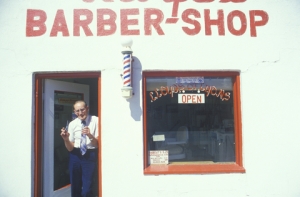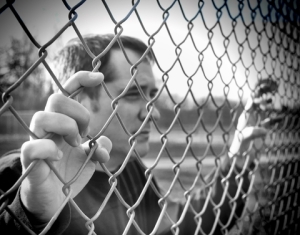10. Criticize the person, not the action. When she bends the rules in a board game, loudly exclaim: “You’re such a cheater!” Never indicate that you know she’s capable of doing better by saying something like: “I’m disappointed in you. It’s not like you to break the rules.” Let her know you expect the worst from her, and she’ll work at being the best. Kids like to prove their parents wrong.
9. Praise the action, not the person. Never say “Thank you for being a good helper.” If you do, your kid might start thinking of himself as a person who helps others; helping others might become imbedded within him, a part of his character. Instead, say this: “Why should I thank you? You’re just doing what you’re supposed to be doing.” Best case scenario: Ignore his helpful behavior altogether and speak up only when he’s being selfish.
8. Demand conformity. Say stuff like: “Stamp collecting! You’re such a weird kid. Why aren’t you playing video games like everybody else your age?” Her life will be easier if she goes with the flow and follows the crowd. And, after all, it’s your job to make her life as comfortable and pain-free as possible. A round-hole world is not kind to square pegs.
7. Schedule his every moment. Childhood is brief, and how kids spend those childhood hours is way too important to be left to kids. After all, he’s got a lot to learn. If you leave it up to him, he might waste those years laying in the grass watching clouds roll by or taking your kitchen clock apart to see how it works. A programmed kid is a productive kid.
6. Live vicariously through her. Thank goodness for second chances! Life unfairly prevented you from realizing your dream of dancing on Broadway, but let nothing stop you from getting your daughter there. She might think she wants to be a marine biologist, but you know how happy she’ll be when she’s a big New York star. And the road to stardom begins with dance practice before school and gymnastics afterwards. Your kid is a sculpture: you can chisel her into the person you know she’ll want to be. She’ll thank you later.
5. Protect him from failure and unhappiness. You hate to see him unhappy. And isn’t it your job to make him happy? To keep him from pain? To ease his way? To catch him before he hits the ground? He’ll have time when he’s an adult to learn how to deal with a challenging and difficult world. And he’ll find out soon enough that he won’t succeed at everything he tries. Right now you’d better call his college professor and fix things: Baby got a B- in calculus!
4. Praise intelligence, not effort. If you constantly tell her how smart she is and ignore how hard she works, she’ll learn that effort is worthwhile only if it results in victory and achievement. Challenges must be avoided at all cost because she might fail. She’ll learn that looking smart is more important than learning. And who doesn’t want a kid who looks smart?
3. Reward only success. Let him know that failure is not an option. Discourage experimentation; it might end in failure. The world hates losers. (Do you want your kid to go through life with a big “L” stamped on his forehead?) If his worth is totally tied up in his success, he’ll make sure he never fails because that’ll make him unworthy of your affection. So he’ll only try things when he’s sure of success. And he’ll never fail. Mission accomplished!
2. Make her the center of your universe. Let her know she is the most important part of your life. That’ll send her self-esteem sky-high. Say things like: “My daughter is my whole world!” When it comes time to pick between her and your spouse, always pick her. When she whines about going to Sunday School, stay home from church with her. And never leave her with a baby-sitter; there will be plenty of time for spiritual growth or romantic moments with your spouse when she leaves home. At age 30. Or 40.
1. “Do as I say, not as I do.” Make it clear that you want him to be a better person than you, and so he should listen to what you say and ignore what you do. He needs no model to show him how a mature, emotionally-healthy adult acts; all he needs to do is shut up and listen carefully to you. After all, kids invariably listen attentively to parental lectures–no need to back up those words with actions.
Full disclosure: The author is the parent of two children who somehow turned into well-adjusted adults despite him and his mistakes.







